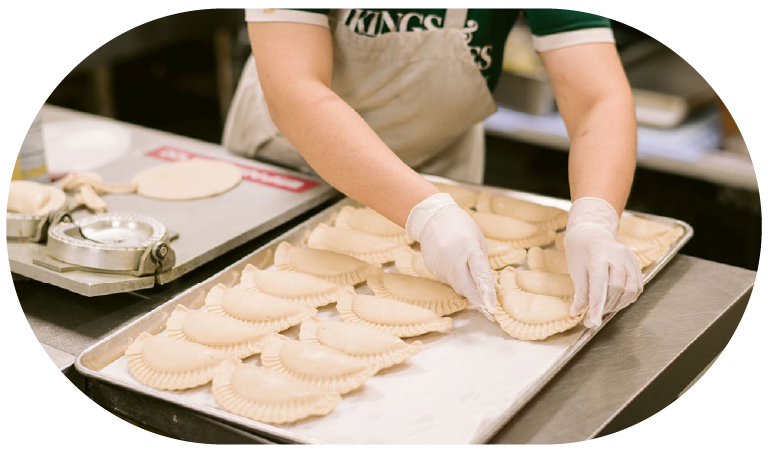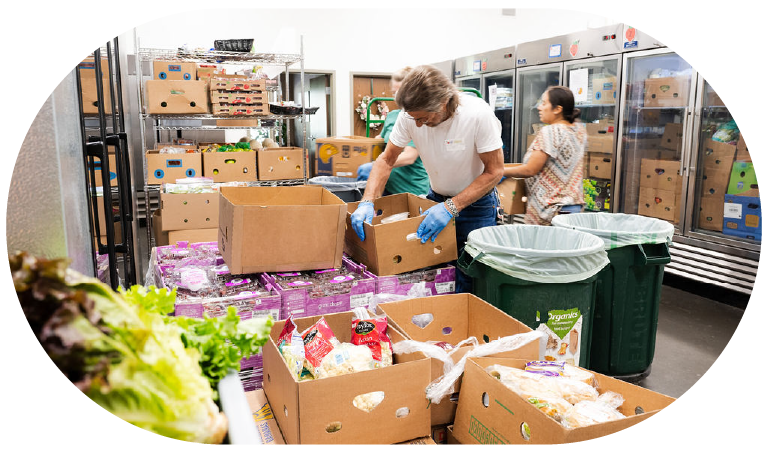Food service establishments include cafeterias, caterers, restaurants, bars, buffets, cafes, hotels and any other business that serves food to people outside the home. In addition to the Commercial Recycling Law that requires most Twin Cities metro area businesses to recycle, the cities of Roseville and Saint Paul have ordinances requiring restaurant to-go ware to be compostable, recyclable or reusable.
Challenges
Responsibly managing waste at a food service establishment can be challenging due to constantly changing customers, difficulty predicting customer habits and a fast-paced environment for employees. The following obstacles are common in the food service industry:
- Front of house composting can have high rates of contamination.
- Staff turnover and varying customers makes education and implementation difficult.
- Customers can have a large impact on waste, especially food plate waste.
- Forecasting demand can be difficult.
Best Practices
To combat the challenges above, try implementing the following best practices:
- Ditch disposables in place of reusable dishes, cups, mugs, silverware, to-go ware and napkins.
- If you cannot use reusable materials, opt for recyclable OR compostable materials, but do not mix. Compostable items must be BPI certified.
- Provide an incentive for bringing reusable to-go ware, such as travel mugs and containers for leftovers.
- Sign up for one or more food waste management services.
- Commercial composting (or on-site composting)
- Invest in food tracking software to reduce food waste by forecasting demand, tracking stock and minimizing over-ordering.
- Offer customizable meals. Include a variety of portion sizes, optional side dishes and smaller plates if at a buffet.
- Practice smart menu planning.
- Use fewer ingredients in your menu/repeat ingredients.
- Have a plan for using up extra ingredients.
Resources


